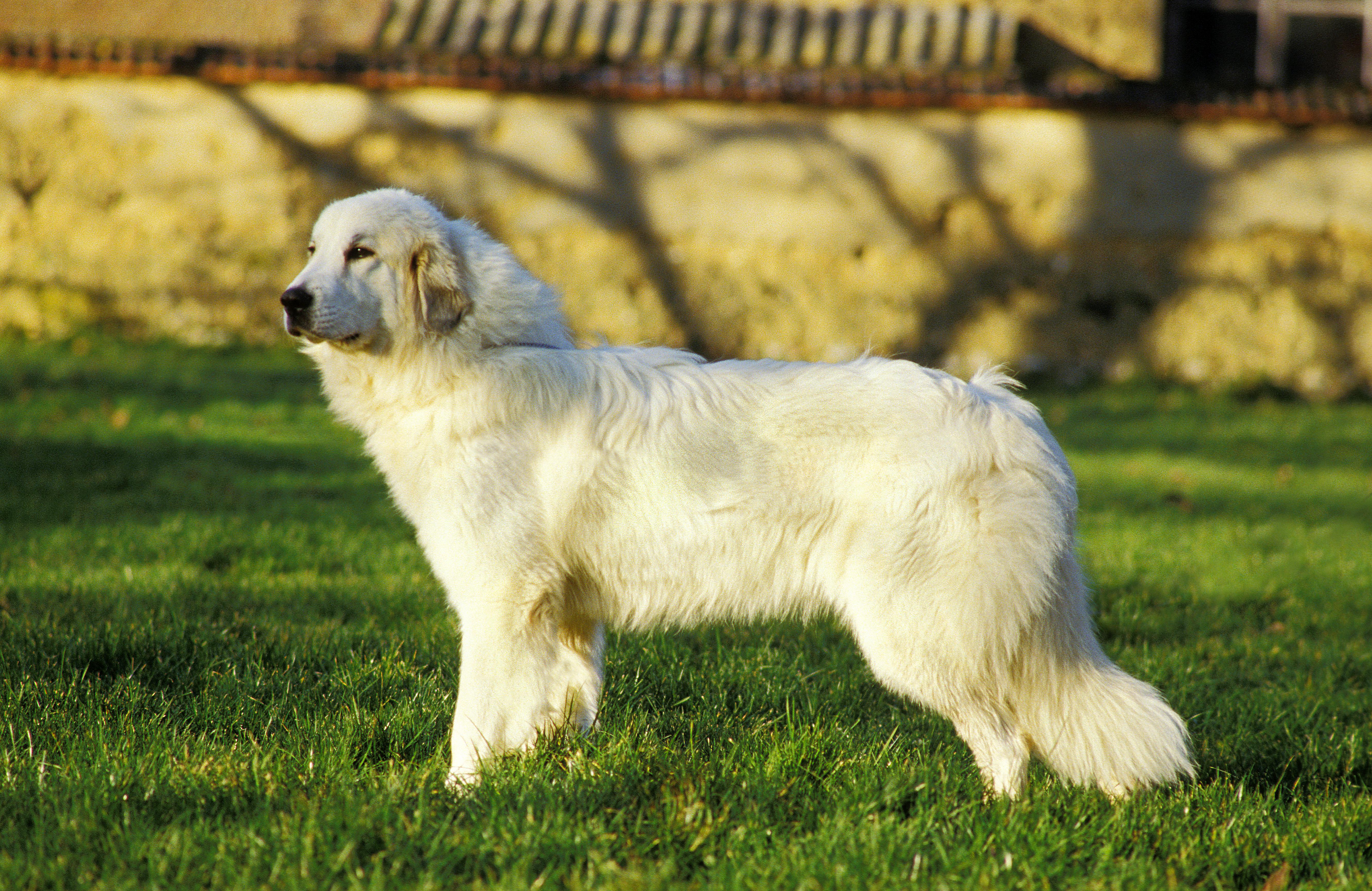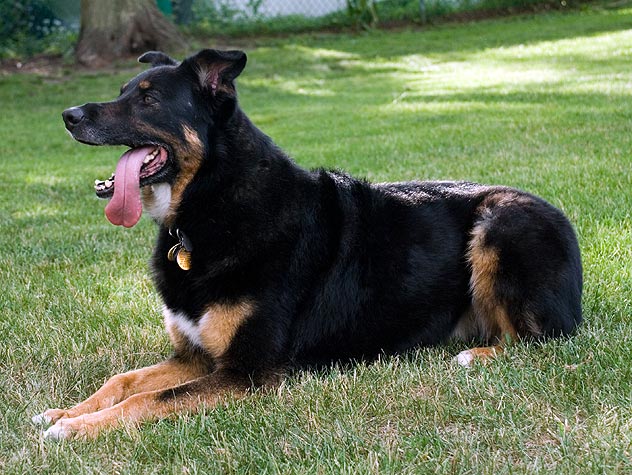Great Pyrenees
These gentle guardians are strong and big-boned. The Great Pyrenees is sure-footed with smooth movement driven by powerful hindquarters. And for good reason, too—these dogs were once bred for guarding flocks on the steep slopes of their eponymous mountain range. Thanks to their hilly origin, Great Pyrenees dogs also sport a fluffy, wooly coat once used for cold winters.
Breed characteristics carousel
Learn More
Need to Know
- Dogs suitable for experienced owners
- Extra training required
- Enjoys active walks
- Large dog
- Some drool
- Requires frequent grooming
- Chatty and vocal
- Barks, alerts, and may be physically protective/suspicious of visitors
- Might not like other dogs
- May need additional training to live with other pets
- May need additional supervision to live with children
- Needs plenty of space
- Best suited to suburbs or country living
- AKC Registered Breed

Personality
You might call the Great Pyrenees a discerning detective. These pups might be apprehensive of new people and friends before getting to know them. Their stubborn personalities make them fiercely independent and occasionally contentious. That streak, however, is just armor for the big soft teddy bear underneath.
The Pyrenees Mountain Dog is a livestock guardian dog with an ancient history. The breed protected sheep and cattle in the French Pyrenees for thousands of years. Raised with the flocks from a young age, these dogs formed strong bonds with the animals they guarded. Their thick coats and specialized collars helped shield them from wolf attacks.
While the exact origins are unclear, the Great Pyrenees likely shares an ancestry with other European guardian breeds like the Kuvasz. Beyond guarding livestock, these powerful dogs were used to protect French castles and even aided smugglers in carrying contraband across the mountains. They came to the U.S. in the early 20th century as livestock guard dogs and have since morphed into companion dogs.
The Great Pyrenees is not a breed for casual dog owners. These dogs crave the outdoors, so city life isn’t for them. Great Pyrenees require a securely fenced property and minimal contact with strangers due to their strong guarding instincts. Training is challenging as their protective nature is deeply ingrained. This breed is best for experienced, rural owners who can provide a large, secure space for their independent guard dog.
Great Pyrenees dogs are extremely large but do not require a lot of exercise. They do, however, enjoy space. Because of their size, gradually increasing exercise time and distance is important.
Great Pyrenees thrive in wide-open spaces: these majestic guardians are happiest with ample room to roam and protect. While not suited for bustling neighborhoods, they excel as loyal companions for experienced owners in rural settings. Providing a secure area and minimizing contact with strangers keeps them comfortable and ensures their safety.
Grooming Great Pyrenees dogs is important; they need a lot of attention when it comes to their appearances. Brush or comb them once or even twice per day to prevent matting. This becomes even more important during peak shedding season.
Great Pyrenees are intelligent dogs, but their independent nature means training requires patience and dedication. It's a continuous process, not a one-time thing. Basic skills like leash training are essential. Remember, your playful pup will grow into a powerful dog! Consistent training ensures you can manage the dog well.
While they are gentle giants, Great Pyrenees are better suited to child-free homes or those with adult children due to their size.
The cost of a Great Pyrenees from a breeder is significantly more than the cost of adopting one from a local shelter or rescue. The adoption fee usually covers additional items such as spaying or neutering, vaccines, and microchipping.

Learn more about feeding and caring for your Great Pyrenees on Purina.
Did You Know?
- The Great Pyrenees dog is popular in Japanese manga and anime culture.
- In 2014 a Great Pyrenees dog named Duke became Mayor of Cormorant, a small town in Minnesota. He held the ceremonial role for four consecutive terms.
- They are naturally nocturnal as they were originally bred to guard flocks and cattle at night.
- Queen Victoria, champion of many dog breeds, had a Great Pyrenees.


